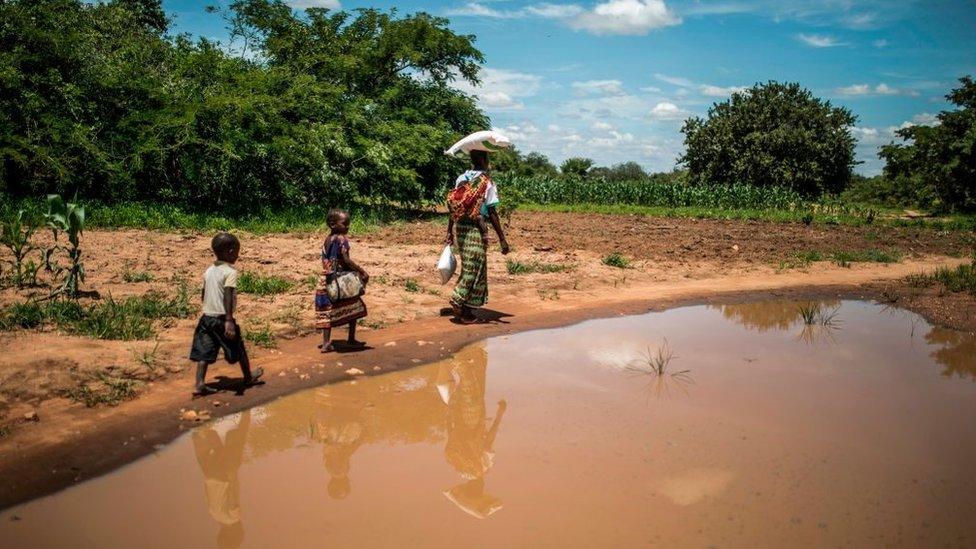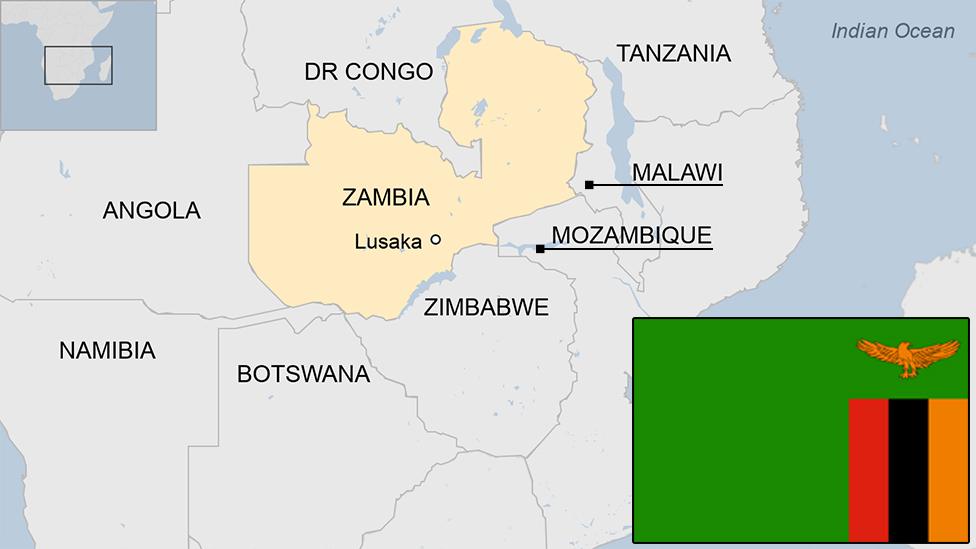Zambia on brink of defaulting on foreign debt
- Published

The pandemic has aggravated pre-existing financial pressures
Zambia is on the brink of defaulting on its foreign debt after it missed a payment of more than $40m (£30m) last month.
A so-called grace period will expire on Friday, which would make it Africa's first country to default on sovereign debt since the coronavirus pandemic.
Zambia was already struggling with its $12bn external debt load.
But coronavirus has aggravated pre-existing financial pressures in the country.
The International Monetary Fund (IMF) said on Friday it was in talks with Zambian authorities about how best to support the country, but its help would depend on Zambia taking steps to make sure its debt was sustainable.
The pandemic has put an additional burden on health services and depressed economic activity and the government has said that is the cause of its difficulties.
But critics have blamed President Edgar Lungu's poor economic management and there have been concerns about corruption in recent years.
Zambia has asked for a delay to interest payments until April next year but creditors have not yet agreed.
The debt includes about $3bn in bonds issued in Europe.
'Reckless splurge'
The country has been lent money by China and Chinese institutions amounting to $3bn, the Reuters news agency reports.
BBC Africa's Jameisha Prescod looks at how Zambia's financial issues have been made worse during the pandemic
The China Development Bank has agreed to a six-month delay in debt repayments, but creditors outside China complain that the exact terms and structure of the Chinese loans are unclear.
According to Stephen Chan, an expert on African politics at the University of London, the last five years in Zambia has seen "quite a reckless splurge in terms of debt accumulation".
He told the BBC's Newsday programme that without a plan to repay the debt, a moratorium may not be forthcoming.
Zambia's Finance Minister Bwalya Ng'andu told the Reuters news agency earlier this week that the country was doing "everything possible" to avoid a default.

What difference would a default make?
By Andrew Walker, BBC World Service economics correspondent
For a developing country that defaults, much of the damage is already done before the event actually happens.
If international investment funds know that a default is a real risk, they may steer clear of the country concerned. If they are prepared to put their money in they will seek a high return to compensate them for the risk of losing it.
To put it another way, that means higher borrowing costs for the country concerned and there are other pressing demands on government finances from the health and economic consequences of the pandemic.
The difficulty and cost of borrowing can be aggravated if a default does occur.
Zambia is not alone in struggling with its debts. Many other African countries have been identified by the IMF and the World Bank as having a high risk of "debt distress" which can lead to default.
A debt-relief initiative by governments of the G20 leading economies has eased the immediate pressure somewhat for some countries, but looking ahead, much will depend on whether they extend it and whether private sector creditors can be persuaded to take part.

'Immoral demands'
Sarah-Jayne Clifton, director of the UK-based Jubilee Debt Campaign, which is calling for debt relief for the world's poorest countries, said creditors lent to Zambia at high interest rates knowing the debt would probably become too great.
"That risk has now materialised, and bondholders must now accept a significant debt write-down," she told the Reuters news agency this week.
"It is simply immoral for bondholders to demand full repayment and to make huge profits on Zambia's debt while the country struggles with Covid-19, a major economic crisis and spiralling poverty levels," she added.
But bondholders have so far not expressed support for a delay.
Eurobond holders have pointed out that the country has not made headway in earlier talks with the IMF.
Zambia is not the only country in Africa struggling with an increasing international debt, and other governments will be watching closely as to how borrowers and creditors deal with the case.
- Published24 March 2023
